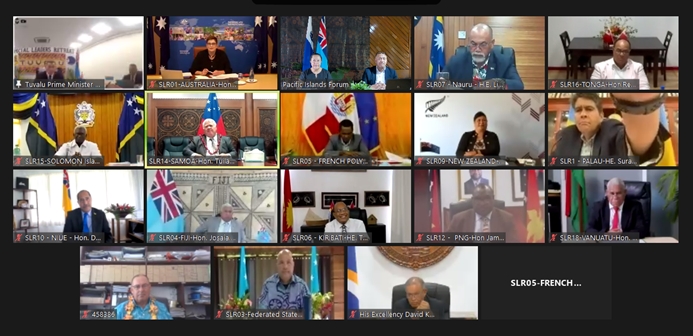Ten years ago Islands Business named the PNA, an acronym for the parties to the Nauru Agreement, as our Pacific ‘Organisation of the Year’, a recognition previously only given to individuals.
Given the events of the past few weeks at the Pacific Islands Forum and the University of the South Pacific, we’ve gone back to Dr Transform Aqorau’s super-readable book on the birth and evolution of the PNA, Fishing for Success: Lessons in Pacific Regionalism.
Dr Aqorau’s observations on how and why the PNA has succeeded, and how this might apply to other collective, regional efforts, are worth revisiting.
“The goal of regional cooperation should be to reduce aid dependency, not perpetuate dependency on others,” Dr Aqorau writes.
“One of the lessons I have learnt is that Pacific Island countries are not always going to succeed in all the endeavours they attempt. For Pacific Islanders, there needs to be a ‘common currency’ surrounding regional projects, so the various countries are able to work together cooperatively. Specifically, this is a willingness to pursue something when it does not appear to encroach on matters that members feel should be done by them individually, and not collectively. If this aspect is missing, then failure is to be expected.”
Significantly, the PNA set up its headquarters in Majuro, marking a shift in the geopolitics of Pacific fisheries from the south to Micronesia. This resonates given the recently articulated concerns of the Pacific Islands Forum’s Micronesian members, who say the PIF has failed to be truly responsive to, or respectful of the issues of all of its members, particularly those from the north.
PNA does not include all Pacific Islands, its members are those who have a real stake in the tuna industry. It is not heavily reliant on donor funds for its operational costs or survival, and therefore not influenced by the agendas of external donors. It is not a heavy bureaucracy. It has clear and tangible economic and social objectives.
The current fractures give us license to ask again, when is collective action really appropriate and necessary, rather than just assuming the default position. The PIF and the USP will survive; they are bigger than any individual. And would it be so bad if the Forum for example, spent its energy on a small and focussed number of issues that are important to all of their members, rather than the laundry list of resolutions (with no meaningful follow-up) we see emerge from Leader’s retreats some years?
In his book, Dr Aqorau concludes that the PNA journey “has been a simple one. It has been about working from the heart, from a gutsy determination to do something different, to be innovative and to reach deep within my personal energy to ensure that our peoples — the young, the old and feeble, the people in the village — get a fair share of the returns from our tuna resources.” Ultimately, if our collective regional efforts do not serve our students looking for jobs, our needs as young nations for critical and constructive thinkers, and the desperate needs of Pacific islanders threatened by the economic and health impacts of COVID, natural disasters and climate change, what are they all for?
